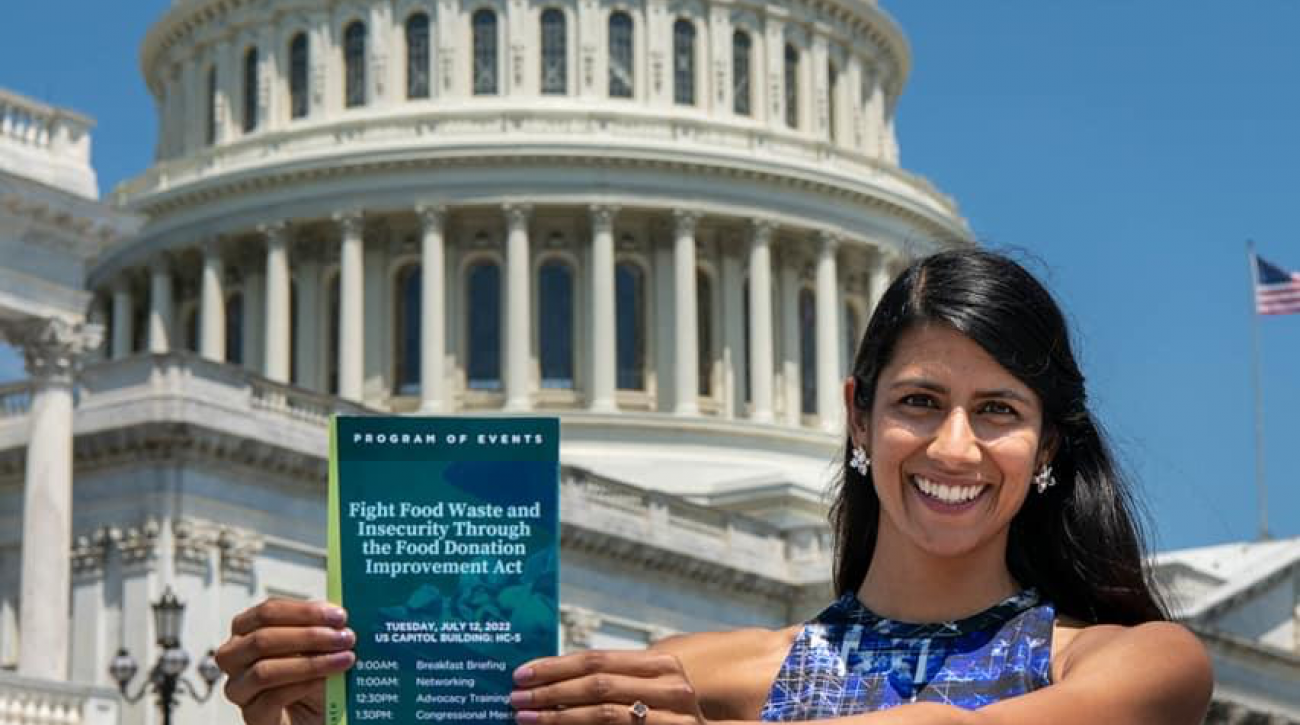WASHINGTON (March 15, 2023)--The U.S. wastes approximately $108 billion of food each year, largely due to a lack of clarity surrounding liability protections for businesses. Restaurants and grocery stores end up throwing away food rather than donating it because they fear a potential lawsuit. In the fall of 2021, alumna Niyeti Shah launched a national petition and began building a coalition to pass the Food Donation Improvement Act.
The Act expands upon the Bill Emerson Good Samaritan Food Donation Act of 1996 by broadening protections for food donors and allowing more types of donations, including items sold at low cost or given directly to people affected by food insecurity. According to advocates, the Act will help reduce food insecurity and the vast amount of food waste in the U.S. The effort to push this bill forward was driven by a coalition that Shah assembled of more than 70 nonprofit and corporate groups, including WeightWatchers, Harvard Food Law and Policy Clinic, Grubhub, Food Tank and Eat Just. The coalition hosted an Advocacy Day on Capitol Hill featuring celebrity chef, Tom Colicchio, as well as Rep. Jim McGovern (D-MA) to educate congressional members on the issues surrounding food insecurity and food waste.
The coalition released an open letter urging Congress to pass the legislation, and in December 2022, it was passed by unanimous consent in the House and Senate.
“I was introduced to the world of food policy as a student at the Milken Institute School of Public Health, the only school of public health in the nation’s capital. While there, I was exposed to many aspects of the federal government and advocacy, as well as the impact that a single person can have on policy outcomes.”
Shah graduated in 2018 with an MPH in public health nutrition and she got right to work in an effort that ultimately led to The Food Donation Improvement Act of 2021, which was signed into law by President Biden shortly after the New Year.
“The Act allows restaurants, grocers, retailers and schools to donate food directly to their communities – removing senseless barriers to food donations and providing nourishing food to families across the country,” she says. “My time at GW was a monumental experience that provided me with the tactical skills and network to advance this bill – a victory I am thrilled to share.”
Shah is currently the Social Impact Program Manager at WeightWatchers working to support the Healthy Living Coalition and WW Good. Previously she was an Associate Director of the Sustainable Food Systems Initiative for the Milken Institute‘s Center for Public Health.
Her graduate research focused on the DC WIC Expansion Act of 2018, comparing the impact of vendor eligibility criteria on participant/vendor ratios across states.
-GW-


